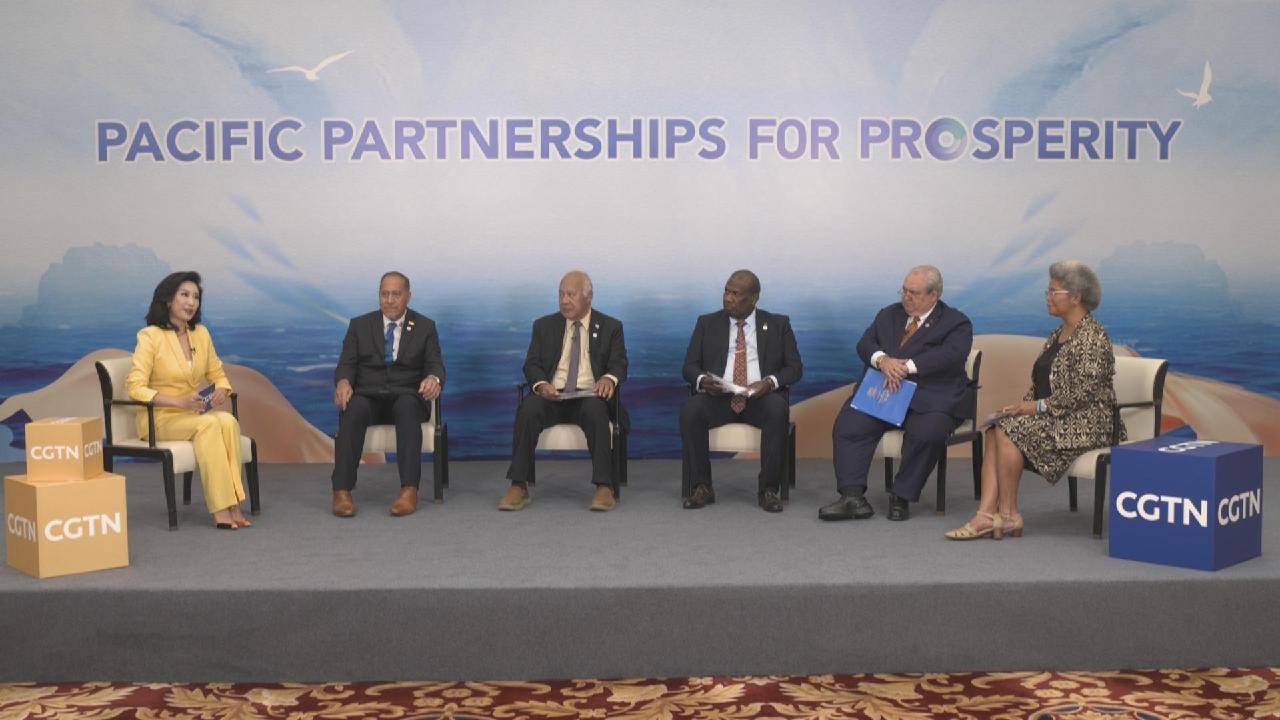Pacific Islands Foreign Ministers Engage in Key Dialogue with CGTN to Strengthen Diplomatic Ties
Pacific Island foreign ministers engage in dialogue with CGTN to enhance regional cooperation.

The Third China-Pacific Island Countries Foreign Ministers' Meeting concluded in Xiamen, Fujian Province, on May 29, marking a significant milestone in diplomatic engagement and regional cooperation between China and Pacific Island nations. The event, which spanned two days, drew high-level diplomatic representatives from Niue, the Federated States of Micronesia, Vanuatu, Papua New Guinea, and Fiji for a roundtable dialogue titled “China-PICs Dialogue: Pacific Partnerships for Prosperity.”
During the discussions, Prime Minister and Foreign Minister Dalton Tagelagi of Niue underscored the longstanding partnership between Niue and China, celebrating fifty years of diplomatic relations built on mutual understanding and respect. Tagelagi reaffirmed his nation's support for the one-China principle, calling it foundational to their ongoing bilateral relationship.
Lorin Robert, Foreign Secretary of the Federated States of Micronesia, described the comprehensive strategic partnership with China as "mature" and highlighted five key areas for enhancement: mutual respect for sovereignty, sustainable development and climate action, expanded people-to-people exchanges, increased trade, and closer diplomacy through open dialogue. “Our future is defined by cooperative action,” Robert emphasized during the meeting.
Echoing similar sentiments, Vanuatu's Foreign Minister Marc Ati lauded China’s vision of building a “community with a shared future” alongside Pacific Island countries. Ati voiced his nation’s hopes for broader cooperation in sectors such as infrastructure, healthcare, agriculture, climate response, and trade, reflecting the region’s critical developmental needs and the positive momentum in their partnership with China.
On behalf of Papua New Guinea, Foreign Minister Justin Tkatchenko praised China’s active contribution to his country’s national development. He highlighted Papua New Guinea’s engagement in the Belt and Road Initiative and articulated a clear ambition for even closer ties with Beijing. Tkatchenko spotlighted agricultural cooperation, referencing the Juncao cultivation project initiated by President Xi Jinping as a transformative success, opening new markets and opportunities for local farmers. He also noted historical bonds, particularly since World War II, and cited the "China-Papua New Guinea Friendship School," which now trains more than 3,000 students per year, as a prime example of educational linkage fostering young talent and people-to-people connectivity.
Fiji’s Assistant Foreign Minister Lenora Qereqeretabua stressed the significance of mutual cultural respect, stating that China comprehends Fiji’s unique identity, traditions, and heritage, and that this understanding is reciprocated by Fiji. This sentiment highlights the growing appreciation for soft-power diplomacy and deeper societal links between the two regions.
Additionally, the dialogue explored urgent challenges including poverty alleviation and education, where participating ministers pointed to practical examples of development initiatives already benefiting island communities. These collaborative programs underscore a shared commitment to sustainable progress and inclusive growth throughout the Pacific.
The roundtable concluded with an expression of optimism and strong commitment from all parties involved, signaling a collective intent to further strengthen diplomatic, economic, and cultural ties. With clear pathways outlined for future collaboration, regional leaders left Xiamen united in their aspiration for a prosperous Pacific partnership anchored by continued engagement with China.




